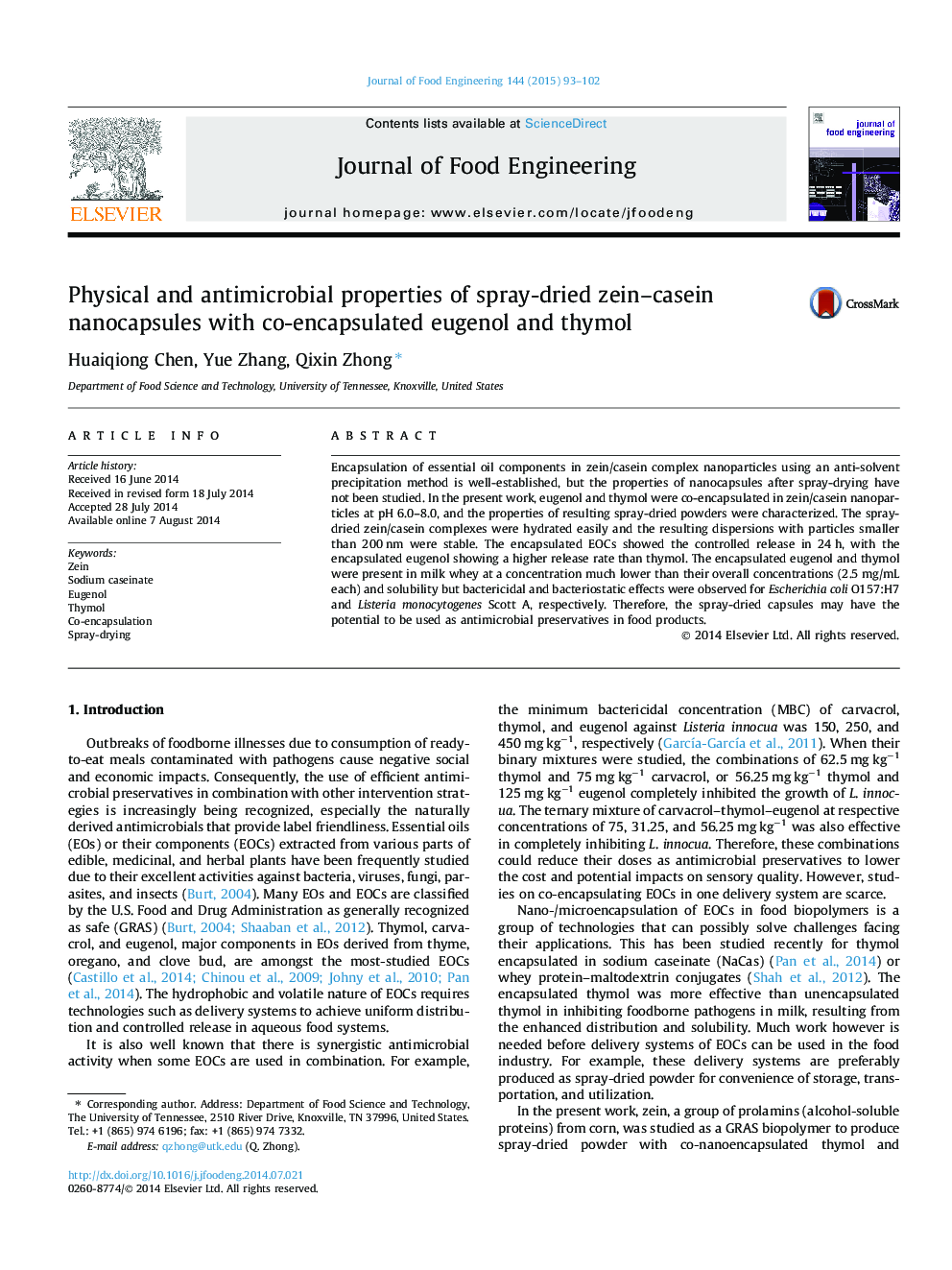| Article ID | Journal | Published Year | Pages | File Type |
|---|---|---|---|---|
| 223011 | Journal of Food Engineering | 2015 | 10 Pages |
•Eugenol and thymol were co-nanoencapsulated in zein/casein, followed by spray-drying.•The spray-dried capsules were hydrated easily in water and the dispersions were stable.•The encapsulated eugenol and thymol showed controlled release at pH 7.0 in 24 h.•The capsules showed bactericidal effect against Escherichia coli O157:H7.•The capsules showed bacteriostatic effect against Listeria monocytogenes Scott A.
Encapsulation of essential oil components in zein/casein complex nanoparticles using an anti-solvent precipitation method is well-established, but the properties of nanocapsules after spray-drying have not been studied. In the present work, eugenol and thymol were co-encapsulated in zein/casein nanoparticles at pH 6.0–8.0, and the properties of resulting spray-dried powders were characterized. The spray-dried zein/casein complexes were hydrated easily and the resulting dispersions with particles smaller than 200 nm were stable. The encapsulated EOCs showed the controlled release in 24 h, with the encapsulated eugenol showing a higher release rate than thymol. The encapsulated eugenol and thymol were present in milk whey at a concentration much lower than their overall concentrations (2.5 mg/mL each) and solubility but bactericidal and bacteriostatic effects were observed for Escherichia coli O157:H7 and Listeria monocytogenes Scott A, respectively. Therefore, the spray-dried capsules may have the potential to be used as antimicrobial preservatives in food products.
